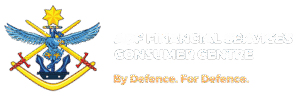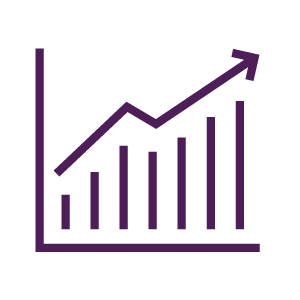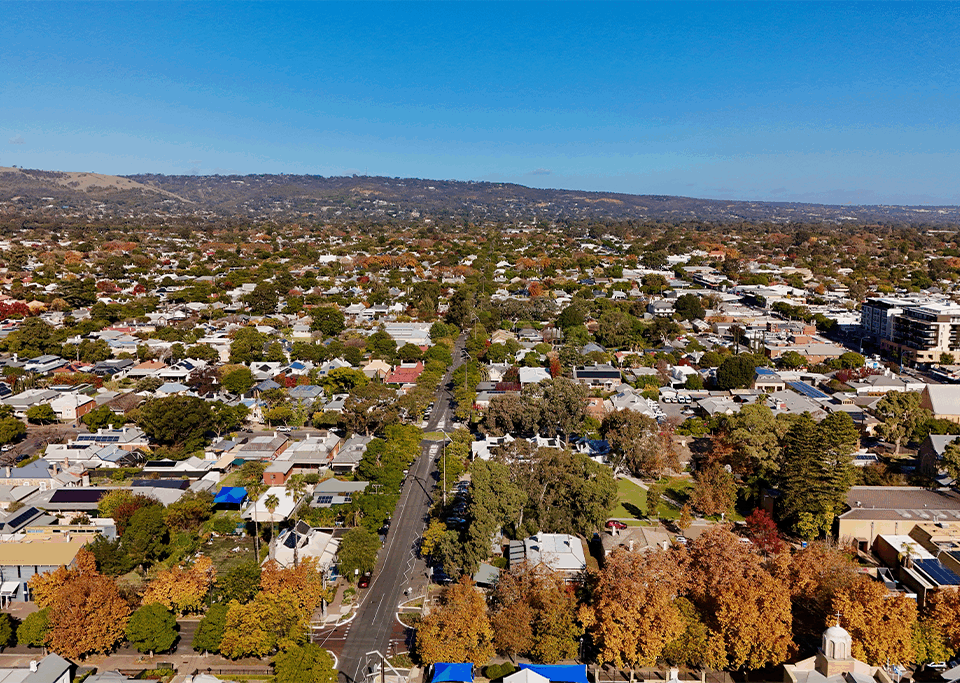SUPERANNUATION
Learn more about how your superannuation works and how you can make the most of your superannuation entitlements.
The Big Picture
Here is some introductory information on The Defence Force Retirement and Death Benefits Scheme (DFRDB), Military Superannuation Benefits Scheme (MSBS), and the ADF superannuation arrangement for new entrants which came into effect from 1 July 2016.
DFRDB (Defence Force Retirement and Death Benefits)
Defence Force Retirement and Death Benefits Scheme or DFRDB was established in 1973 and closed in 1991 when it was replaced by MSBS. DFRDB contributing members were given the option to transfer into MSBS up to 1 October 1992.
DFRDB is what is known as a defined benefit scheme. Final benefits are calculated by a formula set in the legislation, based on your final salary and the years of service completed in the ADF.
If you used to be in DFRDB and are re-joining the ADF, you are unable to re-join as a DFRDB member. You will need to elect a new superannuation fund when you enter.
MSBS (Military Super)
The Military Superannuation Benefits Scheme (MSBS) also referred to as MilitarySuper opened on 1 October 1991, replacing DFRDB. MSBS was closed to new members from 1 July 2016.
If you used to be an MSBS member and you’re re-joining the ADF, different circumstances may apply to you. Please see the FAQs relevant to you below.
MSBS is a combination of a defined benefit and an accumulation fund. Your benefits are calculated in a couple of different ways. MSBS requires members to contribute while they are a serving member (and eligible), which goes towards the ‘member benefit’. The employer part of your benefit is calculated when you leave the ADF and is based on things like an average salary over the last 3 years and your length of ADF service.
There are death and invalidity benefits built into both the DFRDB and MSBS for serving members.
Superannuation Choice
From 1 July 2016, MSBS closed to new members. All new members of the ADF are now able to elect their own superannuation fund when they join.
If an election is not made for a super fund before you join, Defence will seek information from the ATO about your previous super details. This is called super stapling and has been introduced to stop new superannuation accounts from being opened every time an employee starts a new job. More details on this are at the ATO website and the FAQs below.
If you don’t make a choice, and don’t have a ‘stapled fund’, you will be placed into the nominated employer fund, which is ADF Super.
Whether you are a member of ADF Super or a Choice super fund you will receive;
- Employer contributions of 16.4% of your Ordinary Time Earnings (OTE) per annum
- Death and Invalidity cover, provided under ADF Cover, while you are serving in the ADF under the age of 60.
The Trustee of DBRDB, MSBS, ADF Super and ADF Cover is the Commonwealth Superannuation Corporation (CSC).
Superannuation FAQs
New Starters FAQ
When choosing a superannuation fund there are many different factors to look at and it’s important that you consider all the things that are relevant to you. For example it may be a good idea to get a variety of information from multiple different sources and websites to assist you in making your own personal decision, and remember the information you find is just a guide for you to help in making your decisions. The following resources might be useful for you to consider:
- YourSuper comparison tool | Australian Taxation Office (ato.gov.au)
- Choosing a super fund - Moneysmart.gov.au
It is also important that you take the time to read the Product Disclosure Statement (PDS) for any superannuation product you’re looking into prior to making a decision. The PDS can be located on the relevant super funds website or by contacting them and requesting a copy.
Superannuation is a way of saving for retirement, it is money put aside while working to support your financial needs in retirement. Employers make compulsory contributions on behalf of their employees, based on gross income or wages.
You may also choose to voluntarily contribute an amount to your superannuation fund. More information about voluntary contribution is available at Super | Australian Taxation Office.
The intention of superannuation is for it to accumulate during your working life, so that you have money to live off when you retire. Taking an active interest in your superannuation is important for your future financial security.
The Superannuation Guarantee (set by the ATO) is the minimum amount that your employer must pay into your super fund. The current rate of Super Guarantee is 10.5%, this is due to increase periodically up to 2025 until it reaches 12%. For new Australian Defence Force (ADF) personnel, Defence contributes 16.4% per annum of your Ordinary Time Earnings, under the current ADF pay and conditions arrangement.
No. All new employees joining Defence will be given the option to choose their superannuation fund of choice for contributions to be paid into. Making an election will ensure that you are in control of your superannuation.
This election is made via the Superannuation Standard Choice Form.
If you have previously served in the ADF and have exiting superannuation with MSBS, you won’t have an option to choose a different super fund right away. For more information on this please see the FAQs for re-entrants.
If you do not elect a super fund, Defence will request details from the Australian Taxation Office (ATO) of a ‘stapled’ super fund. If Defence makes a request to the ATO, you will be notified by the ATO this has occurred, including the details of any stapled super fund provided. More details on super stapling are available below.
If you do not choose a super fund and you do not have a stapled fund, Defence will pay employer contributions into the current employer nominated fund which is ADF Super.
Note: If you choose an alternative fund it must be a complying fund, such as a retirement savings account (RSA), a fund regulated by the Australian Prudential Regulation Authority (APRA), or a registered Self-Managed Superannuation Fund (SMSF). The nominated fund must be able to receive your employer contributions via EFT.
The current ADF Superannuation fund is ADF Super. This is the employer nominated fund, if you do not choose a fund and do not have a stapled fund, ADF will pay contributions to ADF Super on your behalf.
ADF Super has been open to new members since 1 July 2016 and is an accumulation scheme. For further information and resources regarding ADF Super, please go to the Commonwealth Superannuation Corporation (CSC) website.
ADF Cover is a death and invalidity scheme applicable to all serving military personnel (since July 1 2016), regardless of the super scheme you are with (ADF Super, Stapled or Choice Fund). ADF Cover recognises the unique nature of military service and offers important protection for ADF personnel and their family.
For more information and resources regarding ADF Cover, please go to the Commonwealth Superannuation Corporation (CSC) website.
In order for you to be able to elect a superannuation fund it must be a ‘complying’ fund. This means that it needs to be either a fund regulated by Australian Prudential Regulation Authority (APRA), be a Retirement Savings Account (RSA) or a registered Self-Managed Super Fund (SMSF) regulated by the ATO.
APRA is Australia’s financial system regulator. They ensure providers can meet their financial obligations under all reasonable circumstances.
An RSA is a type of long-term savings account offered by financial institutions used to save money for retirement.
An SMSF is a private superannuation fund where the members are also the trustees, meaning they are also responsible for complying with super and tax laws.
The nominated fund must be able to receive your employer contributions via EFT.
Re-Entrants FAQ
To find out if you still have employer benefit with MSBS please contact Commonwealth Superannuation Corporation (CSC) on 1300 006 727 or via email on [email protected]
If you have access to your online MSBS account you may be able to check your details there, alternatively your annual member statement will contain this information.
When you re-join the ADF, either to Permanent Forces or on CFTS as a DFRDB pensioner, you will be provided the option to choose a complying superannuation fund – if you do not choose a fund and no fund is stapled to you, an account will be opened with the ADF employer nominated fund – ADF Super.
You are not able to return to DFRDB and you are not able to elect MSBS.
In order for you to be able to elect a superannuation fund it must be a ‘complying’ fund. This means that it needs to be either a fund regulated by Australian Prudential Regulation Authority (APRA), be a Retirement Savings Account (RSA) or a registered Self-Managed Super Fund (SMSF) regulated by the ATO.
APRA is Australia’s financial system regulator. They ensure providers can meet their financial obligations under all reasonable circumstances.
An RSA is a type of long-term savings account offered by financial institutions used to save money for retirement.
An SMSF is a private superannuation fund where the members are also the trustees, meaning they are also responsible for complying with super and tax laws.
The nominated fund must be able to receive your employer contributions via EFT.
How to Choose a Super Fund
If you joined Defence after 30 June 2016, you can choose the fund your super is paid into, but how do you go about choosing a fund? Generally, all most people need is a fund with low fees, an investment option that suits your needs, and a history of competitive investment returns. Past returns won’t guarantee future profits but it is a useful way to compare funds.
Investment options
Before you start comparing funds, think about how you will invest your super. Super is a long-term investment you can’t access until you meet a condition of release, usually leaving an employer after turning 60. If you’re more than 5-6 years away from accessing your super you probably have time to ride out the short-term ups and downs of the share market, so you might consider a more aggressive investment option – a bit more risk, but historically better long-term returns.
Why think about investments first? Well, the fund that demonstrates good returns in the ‘Balanced’ category, might not perform as well in the ‘Growth/Aggressive’ or ‘Conservative/Capital Stable’ options. You might want a fund that offers an ethical or socially responsible option, or a range of other investment choices that may interest you.
If you want to eat an apple, you choose from a variety of apples, you don’t waste time comparing oranges.
Comparison tools
If you don’t already have a fund or two in mind, a comparison website can help you identify better performing funds. Some of the non-government super comparison websites include:
Be aware that comparison websites may not cover the whole market and as businesses, may make money through promoted links. They are useful for benchmarking returns for a particular investment option.
If you haven’t chosen a super fund and don’t have a stapled fund account, your employer will pay your super into a default super fund, such as ADF Super, which must be a MySuper product. MySuper accounts typically have lower fees, simple features (so you only pay for services you need), and either a ‘single diversified’ or a ‘lifestyle’ investment option.
The Australian Tax Office (ATO) has a YourSuper comparison tool that allows you to compare MySuper products.
Fees
Super funds charge a range of fees for managing your investments, which could include:
- Administration fees – set dollar amount and/or a percentage of your balance, deducted regularly from your account
- Transaction / switching / buy-sell fees – usually a percentage-based fee charged when you make a transaction or switch investment options, deducted from your account when applicable
- Investment management costs – charged by investment managers for managing the investment, deducted from investment returns before they are credited to your account.
For each fund you are considering, make sure you understand what fees will be charged, how and when.
Military Invalidity Superannuation
In accordance with the Douglas Decision, the Military Invalidity Superannuation Benefits payable under the Defence Force Retirement and Death Benefits (DFRDB) scheme and the Military Superannuation and Benefits Scheme (MSBS) commencing on or after 20 September 2007 are to be taxed as superannuation lump sums, rather than superannuation income streams. Read more on the Douglas Decision from the Commissioner of Taxation v Douglas in the Full Federal Court decision.
Getting Professional Advice
It is not compulsory and not always necessary to get professional advice. However, if you decide to seek it we recommend the following useful links:
Financial Advisers: The facts and the fiction
This video assists members in understanding how the financial advice industry works, whether financial advice is right for them, how to find the right adviser and how to avoid common traps and pitfalls.
Continue Your Finance Journey
Explore further throughout our site to engage and learn how to work towards achieving financial success with our extensive onsite guides, tools and information.
Test your knowledge
Superannuation can be a complicated topic, and it's something we frequently receive questions about from ADF members. This quiz is designed to guide you through the most important issues and considerations on superannuation. By taking the quiz, you'll not only test your knowledge but also discover valuable insights. Once finished, you'll gain access to helpful resources to deepen your understanding and make more informed decisions about your superannuation.









